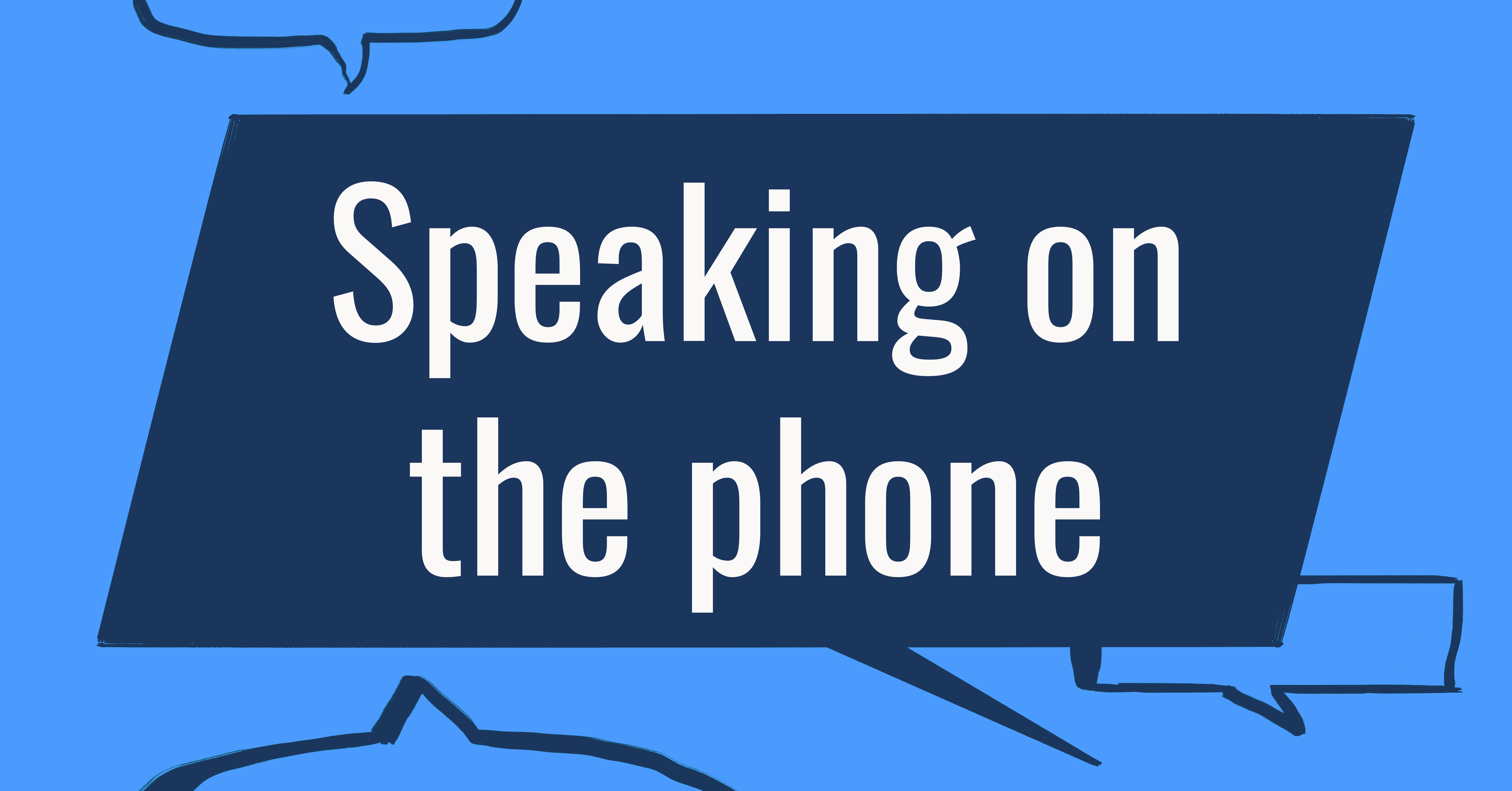Welcome back to our French conversation blog. This week’s blog explains the ins and outs of chatting on the phone in French: our phones may have apps and features to handle just about anything, but there are some things that just need to be sorted out via a telephone call.
From the words and phrases you’d expect to hear, to the vocabulary you might need for phone-related issues, this blog will provide you with the tools and knowledge to feel confident in picking up the phone or making a call en français.
In terms of everyday French, there are two very common verbs used in phrases for phoning someone:
- passer un coup de fil (à quelqu’un) to call/ring (someone)
- téléphoner (à quelqu’un) to phone (someone)
The first option is informal, casual and used in friendly conversation. If you translated it literally, it would mean ‘to pass (someone) a blow of the wire’, which might feel a bit old-fashioned considering that pretty much everyone has a mobile… The second option is very common too, albeit slightly higher register, but definitely easier to remember for English speakers learning French!
You might also hear these related verbs and phrases:
- appeler (à quelqu’un) to call (someone)
- rappeler (à quelqu’un) to call (someone) back
- décrocher to pick up (the phone)
- raccrocher to hang up (the phone)
- répondre au téléphone to answer the phone
- être au téléphone to be on the phone
Before we get into a one-to-one conversation, you might also want to bolster your vocabulary with words on the topic of phones:
- un appel (phone) call
- un portable mobile (phone)
- un numéro (de téléphone) (telephone) number
- composer un numéro to dial or enter a number
- sonner to ring (as in, the sound of the phone ringing)
- une sonnerie ringtone
- un clavier keypad
- un écran screen
- une appli app
- des données (f) cellulaires (mobile) data
You might need these words to ask questions or make statements like:
Est-ce que vous avez un numéro de téléphone ? Do you have a phone number?
Quel est ton/votre numéro ? What’s your number?
Je n’ai plus des données cellulaires. I’ve run out of data.
Vous n’avez pas composé le bon numéro. You have dialled the wrong number.
Elle ne peut pas t’appeler parce que l’écran de son portable est cassé. She can’t call you because her phone screen is smashed.
Now that you’re acquainted with the vocabulary around phones and making calls, it’s time to move on to the way you might converse on the phone in French.
Like in English, there are words and phrases that you might expect in a certain order when making a call. Let’s go through a very basic phone interaction, step by step. Imagine you are the caller:
- You’ll hear the phone dial tone as it rings.
- Someone picks up and greets you.
- You greet them back, tell them who you are and who you want to talk to.
- You make a request or explain what you need.
- They respond to your request and the conversation goes on from there.
- Both of you say goodbye before someone ends the call.
It feels like second nature to imagine how this goes in English, and the words and phrases we come to expect – hopefully this will soon be the case for you in French too!
- Just for bonus information, when you ring a French number, you’ll hear a higher pitched dial tone alternating between one second of tone, and three to five seconds of silence. The UK uses a double tone and a lower pitch.
- We do not use bonjour when answering a phone call, instead you’ll hear the person picking say allô ? This greeting is exclusively for use on the phone. If it’s not someone you know, they might even follow this up by saying Qui est à l’appareil ? which means ‘who’s calling?’
- You might respond with Allô c’est [your name]. If you know the person, you might then ask how they are by saying Ça va ? If the person you wanted to speak to didn’t answer the phone, you can say Je voudrais parler à [their name] or Est-ce que je pourrais parler à [their name] s’il vous plaît ? or Est-ce que [their name] est là ?
- For your request to whoever you need to speak to, it depends on what you want to know or do. We recommend checking out our conversation blog on asking questions to help you form your request. To say ‘I am calling about…’ , you can say J’appelle à propos de [insert topic]… or J’appelle pour [verb]…
- While there’s no definite way of preparing you for their response, bear in mind that asking questions starting with est-ce que often will get a yes or no answer. The conversation will flow from here.
- To end a call, you don’t need to use a special word for goodbye on the phone like allô. A normal, polite reply might consist of both speakers alternating between saying to each other ‘thank you’ (merci), ‘have a nice day/evening’ (bonne journée/soirée) and ‘goodbye’ (au revoir).
Written by Holly Tarbet, freelance copywriter and editor.
All opinions expressed on this blog are those of the individual writers, and do not necessarily reflect the opinions or policies of Collins, or its parent company, HarperCollins.



